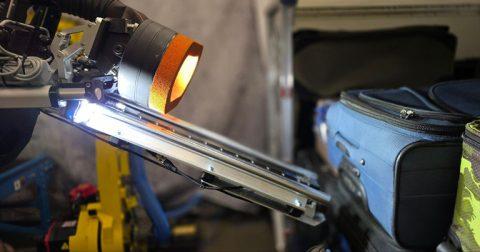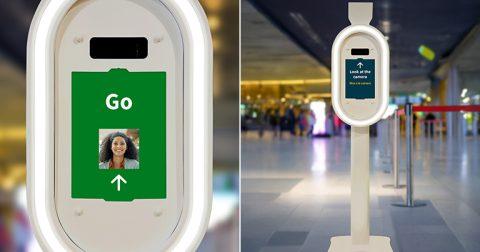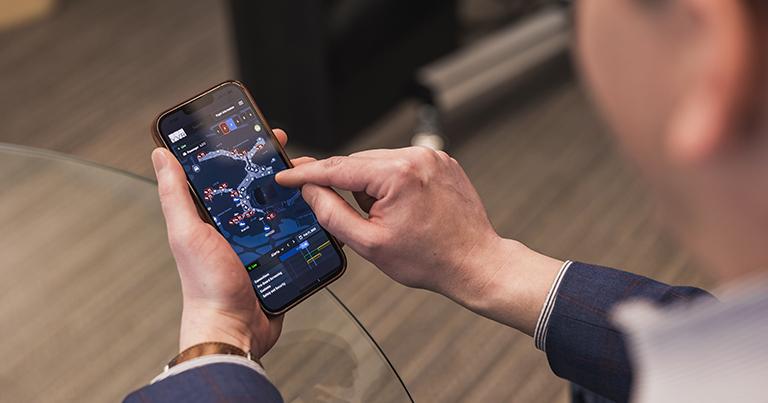
Vancouver International Airport (YVR) – a Corporate Partner of the FTE Digital, Innovation & Startup Hub – is enhancing passenger experience and operational resilience with a progressive strategy that places a strong emphasis on digital tools to streamline processes and make smarter, data-driven decisions. As part of its collaborative approach to innovation, this includes partnering with other airports to explore, test and advance intelligent solutions. Leading these efforts as Vice President, Innovation and Chief Information Officer is Albert Van Veen, who joined YVR one year ago, having previously served – among other roles – as CEO and Chief Digital Officer at FastID, and Chief Digital Officer at Amsterdam Airport Schiphol. Recognised globally for his work in information technology transformation and digital identity, Van Veen leads the development and implementation of transformative digital strategies to redefine the travel experience. His role focuses on leveraging cutting-edge technologies such as digital identity, biometrics, and artificial intelligence (AI)-driven solutions to make travel faster, easier, and more secure for passengers.
At FTE Global – the “CES of Aviation” taking place in Long Beach, California, on 9 to 11 September 2025 – Van Veen will share how YVR is leveraging digital twins and AI to reimagine airport operations. Indeed, YVR has been at the forefront of the industry in utilising an operational Digital Twin, leveraging the technology to improve the passenger experience and lead innovation outside its core aviation business.
“Attendees can expect to see how we’re building toward a future where our Digital Twin serves as the foundation for AI-enabled airport operations – not just for YVR, but for the broader airport ecosystem,” Van Veen explains. “This isn’t a solution built for one airport. What we’ve developed is an end-to-end airport flow system that integrates seamlessly with core platforms like Maximo, SITA, ADB Safegate, and Genetec.”
View the full FTE Global 2025 schedule at a glance >> Register for FTE Global 2025 >>A global AI Marketplace for airports – a total airport management system where airports can access, adopt, and co-develop intelligent solutions

YVR will also introduce a new concept of an AI Marketplace for aviation – a platform where peers across the industry can access, adopt, and test intelligent solutions. This is about building a shared ecosystem where innovation scales across the network, not just within individual airports. “Whether you’re a major hub or a smaller regional airport, and no matter where you are on your digital transformation journey, the AI Marketplace will meet you where you are,” says Van Veen. “Think of it as a space where collaboration meets real-world application – supported by teams ready to connect ideas with impact.”
A key focus is on laying the foundation to further integrate AI into YVR’s operations. The airport is doing so by actively developing and testing modules that will connect to its Digital Twin – ranging from predictive stand insights to intelligent traffic flow models. “A key example is our collaboration with Schiphol to pilot their AI-powered turnaround tool in our environment,” Van Veen shares. “These efforts are helping us build toward a future where AI plays a central role in driving more adaptive, real-time airport operations.”
The Digital Twin is essentially the airport’s living, digital counterpart – fed continuously by real-time data streams from across YVR’s operations. This includes integrations with flight information systems, baggage systems, airside vehicle GPS trackers, terminal occupancy sensors, and other third-party platforms. “By aggregating and visualising these data sources geospatially, the twin gives us a comprehensive, up-to-the-minute view of what’s happening across the airport – from airfield activity to terminal congestion,” Van Veen explains. “This real-time visibility is key to future-proofing. It allows us to stress-test operational responses and make proactive decisions before issues escalate. As we kick-off the AI Marketplace and it evolves, it will enable our foundational Digital Twin to move beyond visualisation and predictive analytics – transforming it into an action-oriented decision support system. By integrating intelligent tools developed across the ecosystem, the twin will help us anticipate, adapt to, and act on operational needs in real-time.”
YVR is partnering with several airports and ports, each at different stages of digital transformation. For some, YVR is providing its Digital Twin platform as a foundational tool to help them begin that journey. For others – like Schiphol – it is collaborating more deeply to test advanced AI capabilities and shared intelligence. “The marketplace provides AI solutions made by airports, for use by airports, and we invite every airport to join us in improving airport management with proven AI solutions,” says Van Veen.
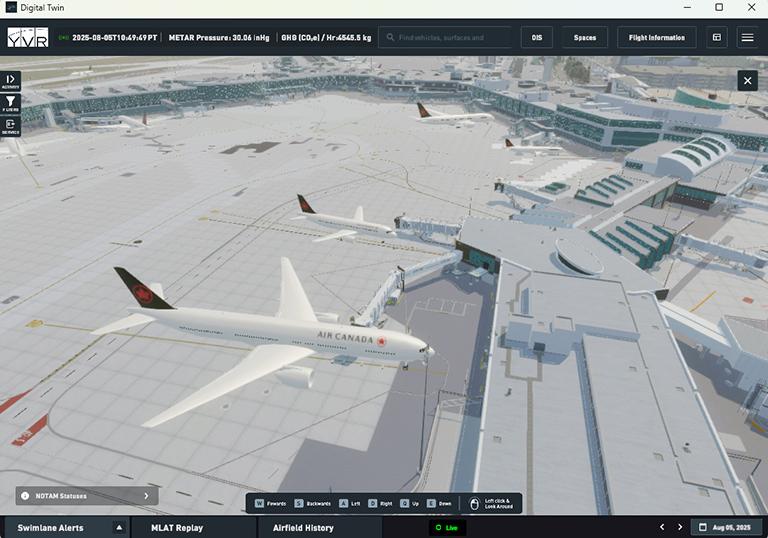
A vision to create an interoperable digital identity ecosystem
YVR’s transformative digital strategies include a focus on integrating biometric authentication throughout the passenger journey, partnering with airlines like Air Canada to pilot facial recognition for faster, document-free processing at check-in, security, and boarding. Van Veen will also discuss this in more detail in the ‘Biometrics & Digital Identity Summit’ at FTE Global.
“Our broader vision is to enable all passengers and all airlines to use biometrics at every checkpoint,” Van Veen shares. “This initiative not only improves operational efficiency but also enhances customer experience and safety. FTE Global offers a great chance to exchange insights and build partnerships to help scale these innovations.”
Biometrics & digital identity is all about reducing friction, helping deliver next-level customer experiences and operational efficiencies. “Biometrics enable faster throughput, fewer bottlenecks, and more personalised service,” says Van Veen. “Operationally, it allows airports to better manage peak volumes without always needing to scale resources. And importantly, it sets the foundation for more resilient, contactless travel.”
Exploring GenAI with development of AI “buddies”
As it further deploys emerging technologies and innovation initiatives, YVR is also actively exploring the use of generative AI internally, particularly through the development of AI “buddies” designed to support teams across the organisation. “Our vision is to empower every staff member with AI ‘buddies’ or agents – founded on data from our Digital Twin,” Van Veen explains. “It’s about embedding intelligence and helping our people work smarter and more efficiently, while keeping decision-making in the hands of the user. On the cargo side, we’re at the beginning of a broader digital transformation journey. While it’s early days, the goal is to bring the same level of visibility and intelligence to cargo as we’re building on the passenger side.”
Key lessons from YVR’s innovation journey: “Prioritise bytes over bricks”
With airports around the world looking to digitise their operations, Van Veen shares some key lessons from YVR’s innovation journey that could be applied to other airports. “Prioritise bytes over bricks – investing in digital infrastructure with the same seriousness as physical infrastructure,” he emphasises. “It’s the only way to build the agility airports need in today’s environment. But making that shift isn’t just a technology decision – it requires bringing the entire organisation along. That means clearly demonstrating the value of digital investments, aligning them with operational outcomes, and embedding digital thinking into every layer of the airport.”
Also, don’t build technology in isolation. “The most impactful innovations are rooted in real operational needs and co-developed with the people who use them – whether that’s frontline staff or external partners,” says Van Veen. “We’ve also learned to treat innovation as a platform, not a project. That means establishing strong data governance, ensuring shared ownership across teams, and designing modular systems that can scale and evolve. Another key element that has provided us with a competitive edge is our robust collaboration with airlines to enable data sharing across partner organisations. Innovation isn’t a bolt-on – it’s an operating mindset that must be embedded across the entire organisation and industry.”
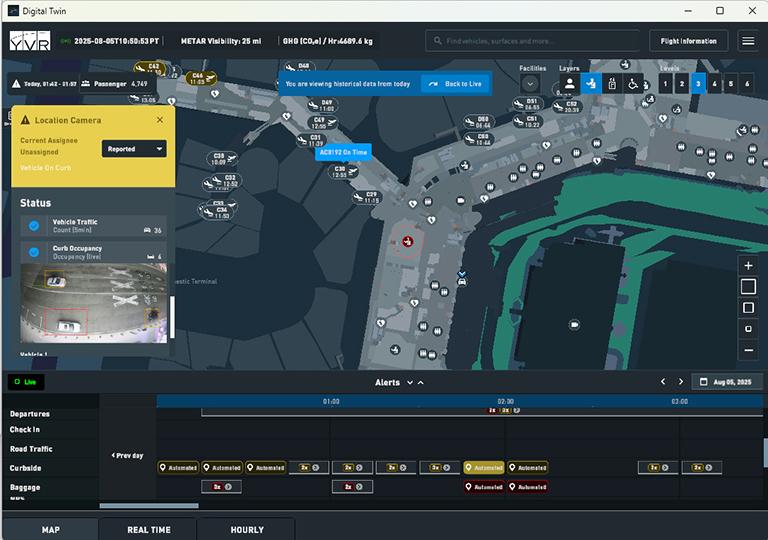
YVR joins FTE Digital, Innovation & Startup Hub: “Innovation is better when it’s shared – and the FTE Hub is a catalyst for that”
As it continues its digital transformation journey, YVR recently became a Corporate Partner of the FTE Digital, Innovation & Startup Hub – a truly unique community designed specifically for the individuals and organisations who are at the forefront of digital transformation and innovation in the aviation industry. It is a one-of-a-kind community where members can openly share their expertise and experiences, discover new partners and inspiration from outside of the sector, explore opportunities to collaborate, and deliver positive change. Corporate Partners also have access to hundreds of approved startup members, each of which has products and services specifically designed to help advance the air transport industry. “We joined because the FTE Hub creates space for meaningful collaboration,” Van Veen shares. “It’s a way to test ideas faster, learn from peers, and connect with startups bringing fresh perspectives. Innovation is better when it’s shared – and the FTE Hub is a catalyst for that.”
FTE Global: “Pushing the boundaries of what’s possible in aviation”
Looking ahead, Van Veen is eager to participate at FTE Global – the “CES of Aviation” taking place in Long Beach, California, on 9 to 11 September 2025 – where he will share what promises to be compelling insights in two conference sessions. “FTE Global is a unique opportunity to connect with peers who are navigating similar challenges and pushing the boundaries of what’s possible in aviation. We’re looking forward to sharing our work on Digital Twin and AI, but even more so to the conversations and collaborations that happen on the side-lines – where real innovation often begins. Our team is especially excited to connect with forward-thinking airports and partners interested in joining and contributing to the AI Marketplace. It’s an open invitation to help shape a shared future where intelligent tools can be developed, tested, and scaled across the airport ecosystem.”
This year’s participation will also feature a truly unique joint presentation with Schiphol’s CIO Lennert l’Amie, spotlighting how two major airports are breaking industry silos to co-create solutions with global impact. Together, they will illustrate how collaboration – rather than competition – can unlock smarter, more connected operations, proving that the future of airport innovation lies in working side-by-side to address shared challenges and accelerate progress.
View the full FTE Global 2025 schedule at a glance >> Register for FTE Global 2025 >>You may also be interested in
12 technology and CX trends that can enhance airline and airport operations in 2025
